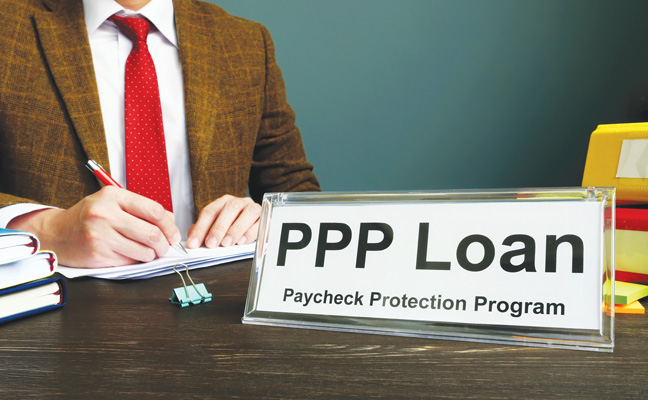
PHOTO: DESIGNER491/ISTOCK / GETTY IMAGES PLUS/GETTY IMAGES
The mergers and acquisitions (M&A) market for quality pest management companies is now white-hot, after a brief hiatus when COVID-19 first unleashed its ugliness on our population.
With valuations up and tax uncertainty for the future, many pest management professionals (PMPs) are looking to sell. But what if you received a Paycheck Protection Program (PPP) loan, and it hasn’t been forgiven yet? Who is responsible for the forgiveness and the payback? Can you even transfer interest in a company that has a PPP loan outstanding?
SBA ISSUES GUIDANCE
The answer to the last question, at least, is yes: Guidance issued by the U.S. Small Business Administration (SBA) describes the procedures required for changes of ownership of an entity that has received a PPP loan. You can download a PDF document at SBA.gov.
This guidance clarifies requirements, and may help businesses that have been trying to go through the forgiveness process quickly because of an impending transfer of ownership. According to the document, a “change of ownership” occurs for PPP purposes when at least one of the following is true:
- At least 20 percent of the common stock or other ownership interest of a PPP borrower is sold or otherwise transferred.
- The PPP borrower sells or otherwise transfers at least 50 percent of its assets (measured by fair market value).
- A PPP borrower is merged with or into another entity.
READY YOUR GAME PLAN
While it may seem like the easy answer is to pay back the loan prior to closing on the deal, it’s not the most financially advantageous move. Most M&A deals in the pest control industry are asset deals, which is consistent with the second bullet point above. In this case, to hold onto the funds, the PPP borrower is required to notify the PPP lender in writing of the contemplated transaction, and provide the PPP lender a copy of the documentation underpinning the proposed transaction.
Some changes in ownership may require SBA review and approval, for which the agency has 60 days to do. Therefore, as the PCO M&A Specialists team and I have seen in some of the transactions we have facilitated, to give our clients (the seller) the best chance to keep the funds, we have been following SBA guidance. It allows for the establishment of an escrow account controlled by the PPP lender in the amount of the outstanding PPP loan balance. This escrow cannot be broken until forgiveness determination has been made; if there is any amount that is not forgiven, that amount will be paid back with interest. Going this route also insulates the buyer from any obligations with respect to fund payback.
If you are thinking of selling your business, or otherwise transferring interest, we highly recommend engaging a broker who has a team with integrated knowledge of all aspects of a transaction, as negotiating the purchase price is only one aspect — albeit an important one.
The borrower’s responsibilities
Regardless of a change in ownership, the Paycheck Protection Program (PPP) borrower remains responsible for all the following:
- Performance of all obligations under the PPP loan.
- The certifications made in connection with the PPP loan application.
- Compliance with all other applicable PPP requirements.
- Obtaining, preparing and retaining all required PPP forms and supporting documentation.
- Providing the required forms and supporting documentation to the PPP lender or lender servicing the PPP loan, or to the SBA upon request.
GORDON owns PCO Bookkeepers, an accounting and consulting firm that caters to pest management professionals throughout the United States. He can be reached at dan@pcobookkeepers.com.
Leave A Comment